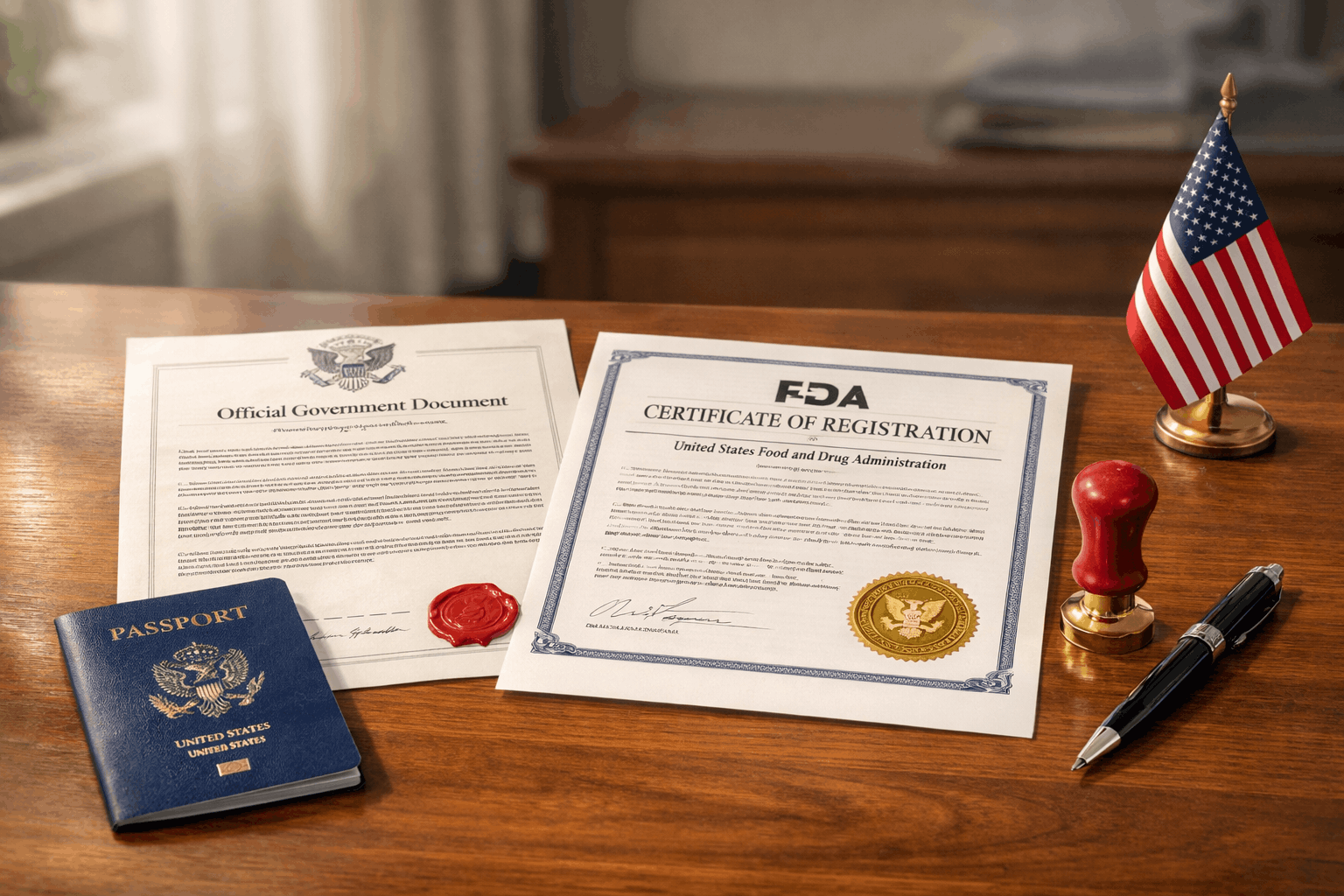
How to Apostille Your Degree Certificate (Complete Process)
There is a high chance that you will need a degree certificate apostille if you plan to study or work abroad. An apostille certifies your educational credentials for foreign use, ensuring they are accepted in any of the Hague Convention countries.
So, how does everything work? This blog post will walk you through the basics of getting your university degree apostilled, from understanding the requirements to the step-by-step process. Let’s get started!
What is a Degree Apostille?
Suppose you apply for a job in Spain, potential employers will likely request your diploma as proof of educational qualifications. To ensure that your academic certificate is recognized in the country, you will need to obtain an apostille for the document. An apostille serves as a confirmation that your degree is legally valid in over 100 countries worldwide, eliminating the need for further legalization steps.
If you skip this step, you risk jeopardizing your chances of enrolling in a program or securing a job abroad. This is because foreign institutions may not be able to verify the authenticity of your document, leading to rejections or delays in your plans. Therefore, whether you require a work visa or aim to continue your studies abroad, getting an apostille for your degree certificate ensures that your credentials are accepted without issue.
When Do You Need a Degree Apostille?
You might be wondering when it’s necessary to apostille your degree. The truth is, it’s needed more often than you think! Regardless of pursuing an overseas career or applying for graduate school, this official stamp holds a great deal. Here’s a breakdown of when you need it, where it applies, and which degrees are eligible.
1. Common Scenarios
If you’re about to embark on an international endeavor, especially for academic or professional purposes that involve verification of your educational history, you may need to obtain a degree apostille. Common situations that require this include pursuing academic studies, securing employment, and applying for international licenses while abroad. Government agencies, universities, and employers often mandate an apostille to confirm your qualifications.
2. Which Countries Require an Apostille?
You’ll need to request an apostille for your educational documents when traveling to any Hague Convention member country. This group includes popular destinations such as EU countries, Japan, and Brazil. For non-member countries, embassy legalization is required. Always check the specific requirements of the country where you are sending your documents to ensure proper authentication.
3. Degree Types That May Need an Apostille
Most academic credentials can qualify for an apostille for international acceptance. This includes bachelor’s, master’s, and doctoral degrees, along with professional certificates and academic transcripts.
How to Get Your Degree Apostille
Getting your degree certificate apostilled is a manageable process once you understand the essential steps involved. From preparing the right documents to receiving the apostille, this guide will help you navigate each stage efficiently and avoid potential obstacles.
1. Gather Required Documents
The first step is to collect all necessary paperwork for the apostille process. Typically, you will need:
- The original or a certified copy of your degree certificate
- A government-issued ID
- A completed apostille request form
- Any supporting documents, if applicable
It’s a good idea to contact the registrar’s office early on to inquire about getting official copies for apostille purposes. Some schools may provide notary services as well.
2. Verify Document Eligibility
After gathering your documents, it’s essential to verify their eligibility. Ensure that your degree certificate was issued by an accredited U.S. institution and is in good condition, meaning it should be free from any damage or alterations.
3. Notarization (If Required)
Certain states require notarized signatures to process apostilles. If your school officials lack notarial capacity, they can provide an affidavit confirming the validity of your degree. You can then take this affidavit along with your academic credentials to a commissioned notary public in your state for notarization.
4. Submit to the Competent Authority
For academic documents, the Secretary of State in the state where they were notarized is the competent authority for issuing apostilles. There are several submission options available: you can submit your request in person, by mail, or through an online portal. Note that some states accept walk-ins while others require appointments, so it’s essential to check the specific requirements in advance.
5. Pay Apostille Fees
Apostille fees vary from state to state, generally ranging from $15 to $20. You can pay using different methods, including credit cards, checks, and cash. Ensure you include appropriate payments to avoid delays. The fees are non-refundable in case of a rejection, so double-check the official Secretary of State website to confirm you meet all the requirements before submitting your request.
6. Processing Times
Depending on your state, the processing time might take anywhere from 3 to 15 days. If you need your documents processed quickly, many states offer expedited services for an extra fee. It’s advisable to plan ahead, especially during peak seasons like graduation periods, to avoid any paperwork delays.
7. Receive an Apostilled Document
Once your apostille request is accepted and processed, you will receive the apostilled document via your chosen method, typically by mail or physical pickup. The apostille will be in the form of a separate page attached to your document. Review it carefully for personal information, signatures, and stamps before using it for international purposes. Now, you’re all set for your global adventure!
Where to Apostille a Degree Certificate?
Typically, the Secretary of State’s offices are responsible for the authentication, as we’ve mentioned above. However, several other entities may play supporting roles in getting degree apostilles. Here’s how the parties are involved:
Apostille Service Providers
For those unfamiliar with the apostille paperwork, professional services like EZ Apostille can be extremely helpful. We streamline the process by assisting with document preparation, facilitating submissions, and following up with authorities for faster results. With expert support, you can avoid unnecessary hassle, especially when dealing with multiple documents and tight timelines.
Law Firm
Law firms are usually involved in complex apostille cases related to international legal matters. They manage the specialized certification needed for compliance with both U.S. and foreign regulations. Unless your apostille request is part of a broader legal matter, you likely won’t need their services to certify a degree.
Notary Public
A notary public witnesses and verifies the signatures necessary for apostille processing. Many states require notarization before submitting documents to the Secretary of State for an apostille.
U.S. Embassy or Consulate
Embassies and consulates don’t contribute to the issuance of degree apostilles. Their role is limited to providing legalization for documents intended for use in non-Hague countries.
Make Your Degree Count Globally
We hope this post has helped you understand how to get your degree apostille and why it’s an important step toward studying or working abroad. By following the outlined process and submitting your documents to the right authority, you can ensure your academic credentials are accepted internationally. If you’re still unsure where to start, feel free to reach out to us for personalized guidance!
FAQs
How long does it take to get a degree apostille?
Apostille requests need 3–15 business days in general for processing, varying by state. Expedited options can reduce the processing time to 1–3 days. You may get same-day results if you choose to drop off your documents physically.
Can I apostille a photocopy of my degree certificate?
No, you must provide the original document or a certified copy issued by your school, college, or university. Photocopies are ineligible for an apostille.
Do I need to notarize my degree before getting an apostille?
Some states require notarization if you plan to apostille a certified copy. Check your state’s regulations beforehand to determine if notarization is necessary.
How much does it cost to apostille a degree certificate?
Apostille fees vary by state, so it’s best to refer to the official website of the Secretary of State’s office in the state where you plan to apostille your diploma. Generally, the cost ranges from $15 to $20 per document.
Can I get an apostille if my degree is laminated, damaged, or not in English?
Laminated or damaged documents are likely to be rejected for an apostille. In this situation, you should request a new certified copy from your institution to ensure it’s eligible for apostille approval. If your degree isn’t in English, it may still qualify for an apostille as long as the notarization is in English. However, some authorities may require a certified translation for processing.
Can I get an apostille for a degree issued in a different country?
No, only educational documents issued in the U.S. can qualify for a U.S. apostille. For degrees obtained from foreign countries, you will need to seek authentication from the issuing country instead.
Can someone else apply for an apostille on my behalf?
Yes, a family member, agent, or professional service can submit an apostille request on your behalf, provided they have all the required documents.
What if my degree is lost — can I still get an apostille?
No, if your degree is lost, you will need to request a replacement from your school’s registrar in order to apply for an apostille.





